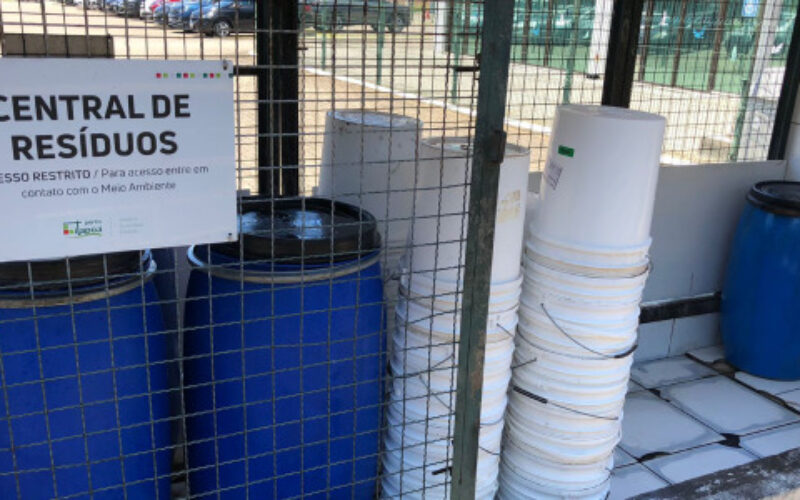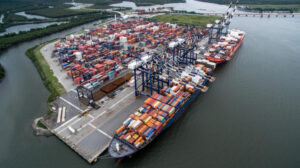Porto Itapoá has become a terminal with ‘zero landfill’ status and a reference in sustainability thanks to its recycling initiative.
All solid waste created by the firm, which was formerly disposed of in sanitary or industrial landfills, is now recycled or co-processed.
The important element is an organic waste solution: a treatment station that employs the accelerated composting process to convert the material into fertiliser. More than 13 tonnes of organic waste were diverted from landfills as a consequence.
The Director of Operations, Environment, and Technology of Porto Itapoá, Sergni Pessoa Rosa Jr., said: “In 2023 alone, we generated more than 5 tonnes of this organic compound. The material is distributed to the local community of Itapoá, which uses it as fertiliser for plantations and gardening.”
READ: Porto Itapoá breaks handling record nearing 100,000 TEU
The solution for the terminal’s organic waste is developed by the company Organa Biotech and is reportedly well-recognised by the market.
Rosa Jr. added: “With this initiative, we also stopped emitting over 17 tonnes of CO2 into the atmosphere and avoided the use of over 1,200 plastic bags this year alone.”
READ: HMM FIL service ship arrives in Porto Itapoá
Other leftovers are also targeted for recycling, with more noble destinations as an industry byproduct.
Civil construction trash, such as bricks, cement, and pavers, is an example of waste that is crushed and utilised by the industry as aggregate for concrete or even the creation of new pavers.
The metallic material is delivered to the metal recycler and, eventually, to the foundry, where it is given new life.
Contaminated materials are treated and turned into compost for cement production. Wood, paper, and cardboard are also given new leases of life with appropriate industrial destinations.
According to Porto Itapoá’s Environment Manager, Christiano Berthier, these solutions are in accordance with the company’s guidelines, which makes it a reference in sustainability.
Berthier stated: “We understand that caring for the environment has a direct impact on the health and quality of life of all of us.”









